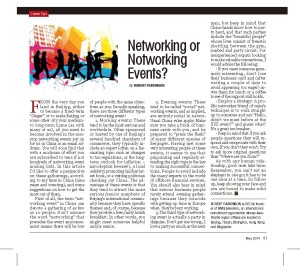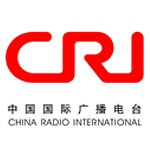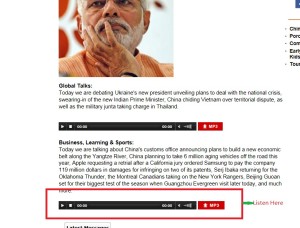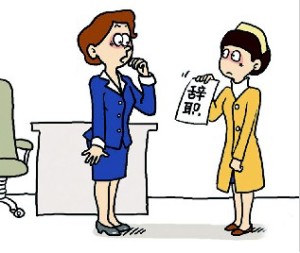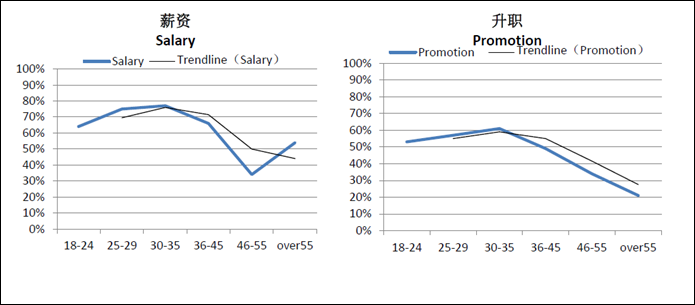
FROM the very day you land in Beijing, either to become a fixed-term “Jinger” or to make Beijing or some other city your medium to long-term home (as with many of us), all you need to become involved in the nonstop networking events put on for us in China is an email address. You will soon find that with a modicum of effort you are subscribed to tens if not hundreds of networking event mailing lists. In this article I’d like to offer a perspective on these gatherings, according to my time in China (nine years and counting), and some suggestions on how to get the most out of them.
First of all, the term “networking event” in China can denote a gathering of as few as 10 people. Don’t assume the word “networking” that precedes the event announcement means there will be lots of people with the same objectivesas you. Broadly speaking,there are three different types
of networking event:
1. Morning events: These tend to be the most serious and worthwhile. Often sponsored or hosted by one of Beijing’s several hundred chambers of commerce, they typically include an expert (often on a fascinating topic such as changes to tax regulations, or the long term outlook for inflation – narcoleptics beware!), a local celebrity promoting his/her latest book, or a visiting politician checking out China. The advantage of these events is that they tend to attract the more serious/senior members of Beijing’s international community because they have specific themes and, of course, because they provide a free, fairly lavish breakfast. In other words, you might meet someone helpful and/or senior.
2. Evening events: These tend to be called “social” networking events, and as implied, are entirely social in nature. Usual China rules apply: Make sure you take a brick of business cards with you, and be prepared to “press the flesh” of many different species of Beijinger. Having met some very interesting people at these events, it seems to me that pinpointing and regularly attending the right type is the key to making successful connections. People to avoid include the many experts in the world of offshore financial services.\ You should also bear in mind that serious business people rarely attend evening gatherings because they coincide with getting-up time in Europe when they’re busy working.
3. The third type of networking event is actually a party in disguise. Don’t get me wrong, I love a party as much as the next man, but keep in mind that China-hands know how to party hard, and that such parties include the “beautiful people” whose lives consist of frenetic shuttling between the gym, sunbed and party circuit. For inexperienced expats looking to make valuable connections, I would advise the following:
∙ If you meet someone genuinely interesting, don’t lose their business card and (after waiting a couple of days to avoid appearing too eager) invite them for lunch or a coffee to see if the rapport still holds
∙ Employ a strategy: A prolific networker friend of mine’s technique is to walk straight up to someone and say “Hello, didn’t we meet before at the XYZ event?” and guess what? It’s a great ice-breaker.
∙ Keep in mind that if you ask people questions they will respond and reciprocate with their own. If you don’t they won’t. Try to ask more original questions than “Where are you from?”
As with any human relationship, good ones take time. Remember, you can’t eat an elephant in one go; it has to be one slice at a time. So follow up, keep showing your face and you are bound to make solid connections.
